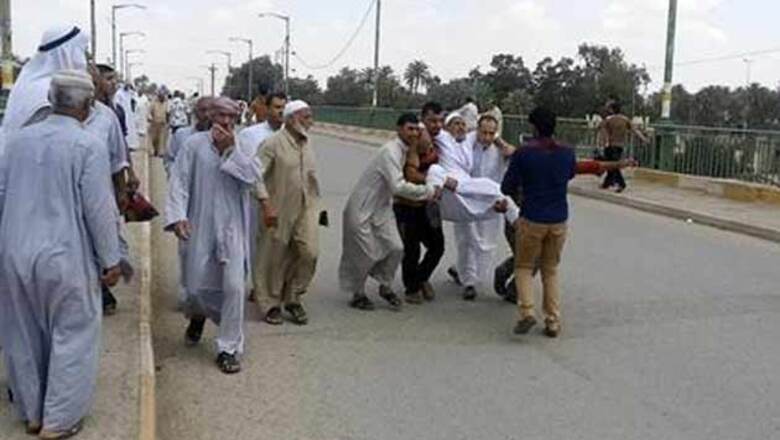
views
Baghdad: Bombs struck Sunni areas in Baghdad and surrounding areas on Friday, killing at least 76 people in the deadliest day in Iraq in more than eight months, officials said, as a spike in violence has raised fears the country could be on the path to a new round of sectarian bloodshed.
The attacks in Baghdad and surrounding areas pushed the three-day Iraqi death toll to 130, including Shiites at bus stops and outdoor markets in scenes reminiscent of the retaliatory attacks between the Islamic sects that pushed the country to the brink of civil war in 2006-2007.
Tensions have been intensifying since Sunnis began protesting what they say is mistreatment at the hands of the Shiite-led government, including random detentions and neglect.
The protests, which began in December, have largely been peaceful, but the number of attacks rose sharply after a deadly security crackdown on a Sunni protest camp in the country's north on April 23. Majority Shiites control the levers of power in post-Saddam Hussein Iraq.
Wishing to rebuild the nation rather than revert to open warfare, they have largely restrained their militias over the past five years or so as Sunni extremist groups such as al-Qaida have targeted them with occasional large-scale attacks.
An increase attacks against Sunni mosques has fed concerns about a return to retaliatory warfare. The deadliest blast on Thgursday struck worshippers as they were leaving the main Sunni mosque in Baqouba, a former Sunni insurgent stronghold 60 kilometers northeast of Baghdad.
Another explosion went off shortly afterward as people gathered to help the wounded, leaving at least 41 dead and 56 wounded, according to police and hospital officials. Bloodied bodies were strewn across the road outside the mosque.




















Comments
0 comment